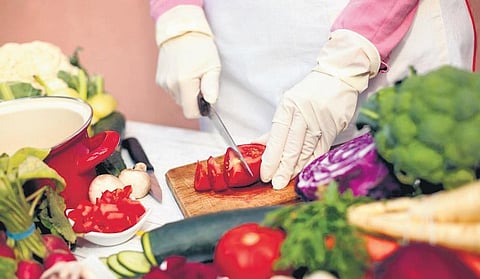Nutrition Therapist Neelanjana Singh on food hygiene during coronavirus
The spread of misinformation is a dangerous thing at all times. But when misinformation is driven by fear, stigma and blame, it only gets worse. Violence against doctors and the denial of dignified last rites to medical professionals who have lost their lives in the line of duty, are some horrible ramifications of this pandemic. Another disturbing result is that people want to cut down trees to remove bat colonies because they hold responsible for the disease. Incidentally, bats play a crucial role in agriculture and pest control.
What we need is to maintain a distance from them. Cutting trees will only further environmental damage.
A welcome initiative to combat fake news is led by a group of over 400 scientists who have formed the coalition ‘Indian Scientists Response to COVID-19’ to address the myths related to this disease. There are a plethora of questions that arise in the realm of food and eating practices. Last week, I addressed some of them by talking about the best practices for grocery shopping.Here are some of the other FAQs related to food that I have answered based on the scientific evidence available at this point of time.
Can food be a carrier of the COVID-19 infection?
Until now, there is no evidence to indicate that food can carry the infection. The spread or transmission of the virus through food has not yet been reported.
Does eating non-vegetarian food increase the risk of this infection?
All food should be cooked following the basic principles of food hygiene. This applies to both vegetarian and to non-vegetarian foods. Non-vegetarian foods – meats, fish, poultry and eggs – should be cooked well before eating. Avoid all raw preparations of fish and eggs.
Is it safe to eat food ordered from outside?
Without a doubt, home-cooked food has many advantages and is the preferred way of achieving nutrition goals. However, there are situations when ordering in your meals becomes a necessity. As mentioned earlier, food is not a known agent for transmitting the disease. But it is important to remain cautious about any extraneous sources of infection while ordering in. Once you unpack the delivered food, discard all the outer packaging immediately and wash your hands with soap and water. Transfer the food contents into a clean container and heat the food well before consumption.
Is it necessary to reheat the food ordered from outside?
Yes, the food ordered from outside is best heated well before you consume it. A high temperature of 70 degrees Celsius kills the virus, which is why re-heating the food at home is a safety precaution you should take when ordering in.
Anything else that can be done to foolproof the process of getting food from outside into the home?
Wipe down the surface on which you open the food packages. Use an alcohol-based sanitiser or a regular disinfectant for this purpose.All in all, to remain safe, one needs to be well-informed and updated. Misinformation will always be around, but it is important to stay vigilant and to seek out information from credible sources. As long as you remain focused on the meaningful things, and on getting your sleep, exercise and a balanced diet, you will stay well.
Neelanjana Singh
Nutrition Therapist & Wellness Consultant

